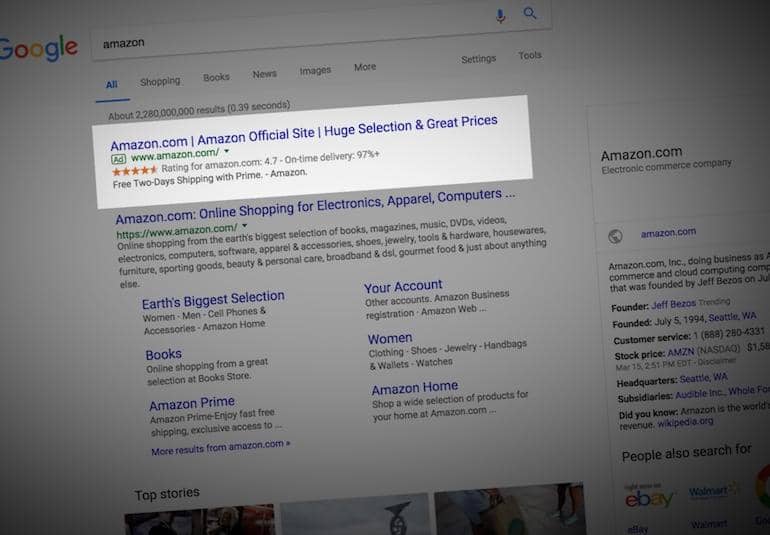A recent ad for retail giant Amazon in Google’s search results directed users to a Windows support scam. And it might not be the first time this has happened.
On Wednesday, a top Google output that appeared to be an ad for retail mammoth Amazon.com was really something substantially more vile – a pernicious connect to a Windows bolster trick. The risky advertisement was first detailed by ZDNet, however, it appears that this issue has occurred previously.
The individuals who tapped on the advertisement were coordinated to a phony help site that introduced an alarm dependent on the OS they were utilizing. As indicated by ZDNet, Windows clients saw a blue-screen-of-death and macOS clients were cautioned that they were contaminated with crypto-ransomware.
Clients who arrived at the trick site were given a blunder number and advised to call a help number for help. Be that as it may, as long as the didn’t call the telephone number, their machine would not have been tainted with malware, the ZDNet report said. In any case, attempting to exit out of the site could have solidified a client’s program.
What’s alarming about this situation is that the promotion looked genuine, and had the option to endure Google’s calculations to land on the first page of query items, arriving over the genuine outcome for Amazon.com, ZDNet announced.
The advertisement was a paid promotion, and appeared to make plans to Amazon.com, which could have been the way the site behind the advertisement tricked Google. Notwithstanding, the promotion never again shows up on Google’s list items.
While this case of an awful advertisement appeared to be novel, it may not be the first run through this sort of malignant promotion has made it to the highest point of Google’s query items. As indicated by client posts on a Y Combinator discussion from late January, comparable advertisements highlighting Amazon, and others highlighting YouTube, have sprung up previously.
Toward the beginning of February, another comparable issue emerged when the client care number recorded for Facebook on Google’s list items really guided clients to a telephone trick. Moreover, Google’s Gmail as of late experienced difficulty separating spam from a spoofed@gmail.com address too.
In any case, this doesn’t imply that Google hasn’t found a way to battle awful promotions. In 2016, the organization apparently brought down 1.7 billion promotions that disregarded their publicizing strategies. Likewise, the US Federal Trade Commission (FTC) has been working for a considerable length of time to battle against help tricks like the ones found in these malignant promotions.
The 3 major takeaways for TechRepublic perusers
As of late, the top Google query output for Amazon.com guided clients to a help trick site that attempted to persuade them their PC was tainted with malware.
For whatever length of time that clients didn’t call the recorded telephone number, their PC would not have been tainted.
Vindictive promotions have showed up in Google indexed lists for significant organizations before, however Google has attempted to evacuate 1.7 billion advertisements that disregard its approaches.

